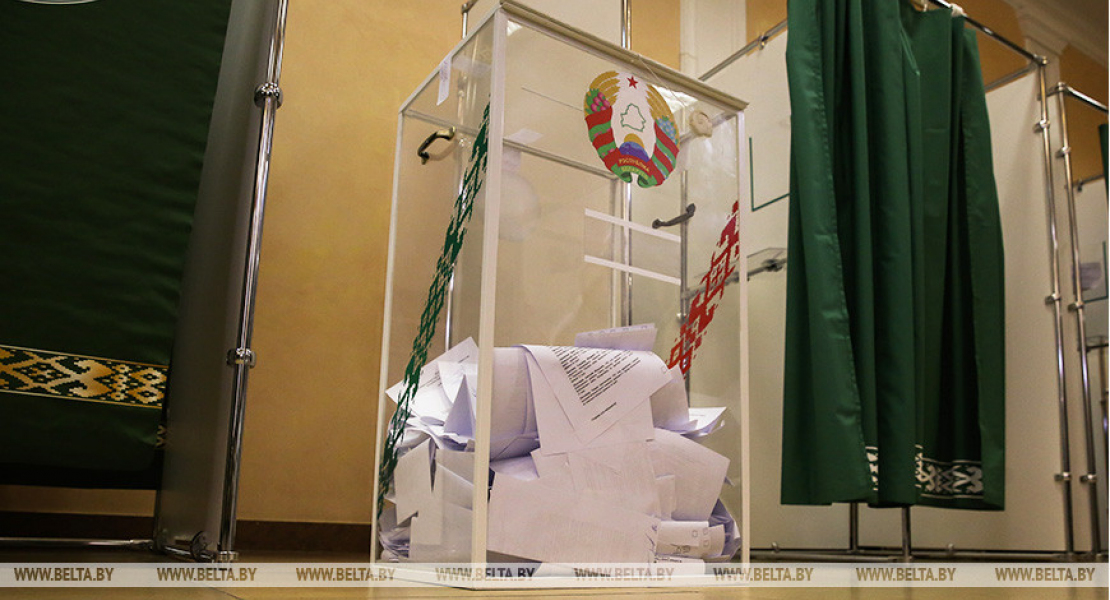Photo by BELTA
Because of the epidemic, collecting signatures and campaigning will be difficult. Arrival of foreign observers in Belarus is a toss-up issue. An attempt of the centre-right coalition to nominate a single candidate has failed.
The presidential election in Belarus to be held on August 9, 2020 – so deputies of the House of Representatives decided at an extraordinary meeting on May 8. This is the earliest date that the law allowed to choose at this meeting (no later than 90 days before the election). Although initially a much later election date had been hinted at – August 30 – the appointment of an earlier date was now justified by the need to factor in a potential second round.
Commentary
- In the context of the coronavirus epidemic, it is going to be extremely difficult to collect signatures and campaign for candidates; the arrival of foreign observers in Belarus is a toss-up issue. The head of the Central Election Commission (CEC) Lidzia Yarmoshyna noted that the elections will be held ‘in special conditions’ because of the pandemic. These ‘special conditions’ come down to reducing the transparency of the process, leapfrogging with voter lists, and introducing new restrictions for candidates. Proposals related to the use of electronic communications during elections were previously scrapped by the CEC. Thus, the authorities have chosen a scenario that makes it even more difficult for candidates to run their election campaigns and for citizens to actively participate in the elections.
- An attempt of the centre-right coalition to nominate a single candidate by a sort of ‘primaries’ has failed. However promising the idea of primaries initially might be, the coronavirus and mutual distrust of the participants stultified its implementation. At the first stage, in a regional vote, the leader of the For Freedom Movement Yury Hubarevich seemed to have won, and at the second, in an online vote, the head of the United Civic Party (UCP) Mikalai Kazlou. However, the results of both stages have not been approved, and the third stage – the nomination congress – is deemed not to come to effect because of the lack of time: May 15 is the deadline for candidates to submit their documents to the CEC. In a statement, the would-be participants of the primaries announced creation of a ‘joint initiative group.’ But without a single candidate, this does not seem to be a workable option. In such a situation, each of the two may start their own campaign, but outside the coalition and given the failure of the primaries, the chances of both look slim. The third participant, Belarusian Christian Democracy co-chair Volha Kavalkova, is not even supported by her own party, and her resources are so scant that she has difficulty paying her penalty fines, let alone campaigning.
- Three other leaders – Andrei Dzmitryieu (Tell the Truth campaign), Siarhei Cherachan' (Hramada) and Aleh Haidukevich (Liberal Democratic Party of Belarus) – are going to run for sure. Dzmitryieu is much experienced in running political campaigns and organizing political events: in 2007–2010 he was an international secretary and a member of the UCP Political Council; since 2010, as a co-chair of Tell the Truth, he has participated in all the elections, including two presidential ones. However, there is a train of scandals behind him, and in a politically active environment he has a remarkably negative rating. Quite the opposite is the case of Cherachan': only once did he participate in parliamentary elections, he became the leader of the Hramada just a year and a half ago, so he is not involved in internal opposition quarrels and remains a fresh face on the political stage. Haidukevich is following in the footsteps of his father: the head of the LDPB, a member of parliament and a pocket rival of Lukashenka in the presidential election.
- On May 8, Valery Tsapkala announced his participation in the elections, though his intentions are unclear. On the face value, this is a strong figure, with an unusual background that can be best described with three ‘exes’: ex-ambassador to the United States, ex-head of the High Technology Park, and ex-assistant to the president Lukashenka. One cannot but wonder, however, how Tsapkala, with no organization behind him, is going to assemble an initiative group and network of supporters in just one week, and then 100 thousand signatures in a month and a half. In case the authorities give him the green light, Tsapkala may turn out a spoiler candidate, pulling the voices of the IT workes, business and liberal segments of society that are dissatisfied with Lukashenka but are hesitant about the opposition.
- The advocates of the boycott are the group standing apart from the rest: Pavel Sevyarynets, Mikalai Statkevich, Anatoly Liabedzka, the Fresh Wind campaign. With their moral position, they easily get the sympathies of opponents of the regime on social networks. However, calls for a nationwide strike or the convening of a Constituent Assembly sound unrealistic. At the same time passivity and non-participation in the presidential campaign completely meet the interests of the authorities.
- Statkevich is going to register dozens of initiative groups of ‘protest candidates’ in order to organize legal street actions on behalf of nominee candidates. Siarhei Tsikhanouski, a video blogger, was supposed to be one of these ‘protest candidates’. Curiously, on the eve of the announcement of the election date, Tsikhanouski was arrested for 15 days, which already sparked street protests of his supporters in a couple of cities. As a result, dozens of protesters were detained. Another problem associated with the blogger is that he was suspected of the unclear origin of funds and ties with Russia. Regardless of the validity of these suspicions, such a reputation is likely to make the authorities’ attitude to Tsikhanouski’s nomination especially hostile and crackdowns on street rallies organized by him are likely to be vehement.
Blitz-commentaries are a joint project of BISS and Наше Мнение


